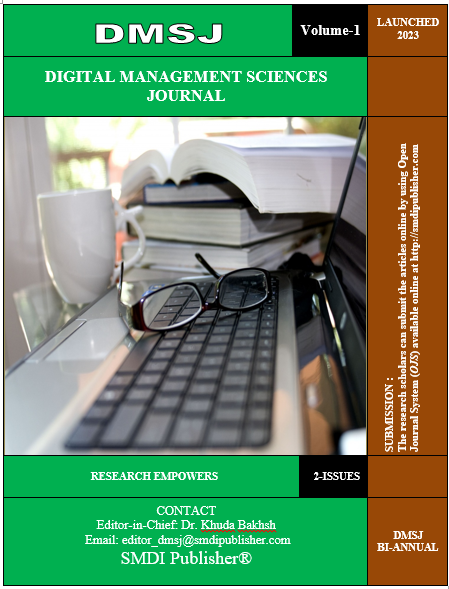Examining the Interconnections among ICT, Education, and Unemployment Evidence from Selected Asian Economies
DOI:
https://doi.org/10.62854/dmsj.v1i2.6Keywords:
Education, Financial Inclusion, Information Communication Technology (ICT), Technological Progress, UnemploymentAbstract
Purpose of the research: This study investigates the influence of education and information communication technology (ICT) on economic growth and development in selected Asian countries, with a focus on reducing unemployment rates.
Design/methodology: Using the Generalized Method of Moments (GMM) technique, the research analyses the relationship between unemployment rates and key independent variables such as secondary education, ICT index, foreign direct investment (FDI), economic growth, and inflation.
Results/findings: The findings highlight the significant impact of secondary education, ICT, FDI, economic growth, and inflation on reducing unemployment levels in the selected Asian countries. The study emphasizes the importance of government initiatives to provide free higher education and expand financial debt facilities to boost per capita income and stimulate economic growth.
Practical Implications and Conclusions: The research underscores the critical role of education, ICT, and economic policies in addressing unemployment challenges and fostering sustainable development in Asian economies. It recommends prioritizing investments in education and technology infrastructure and implementing measures to enhance financial accessibility and ICT utilization to combat unemployment effectively.






